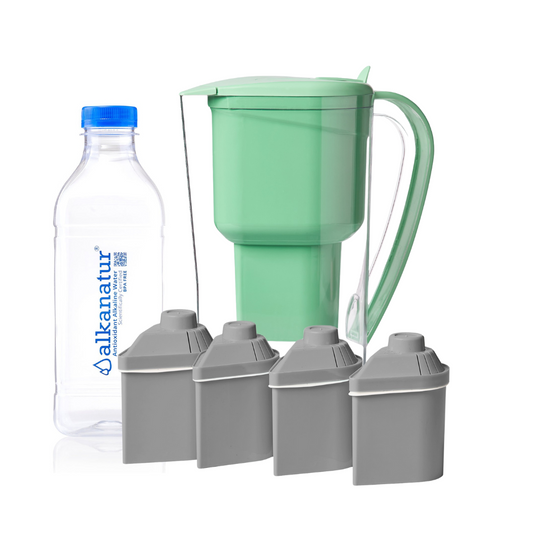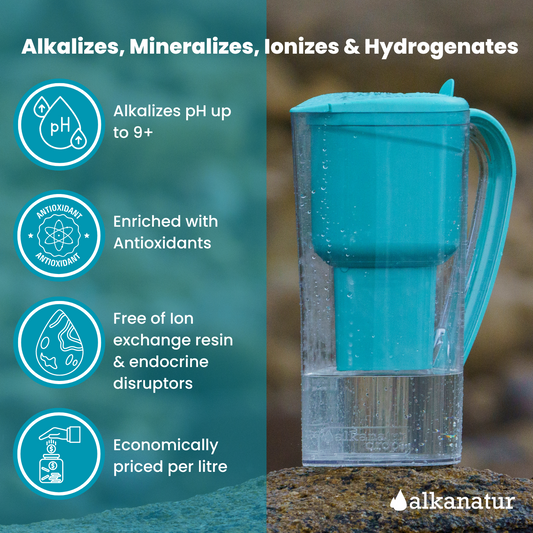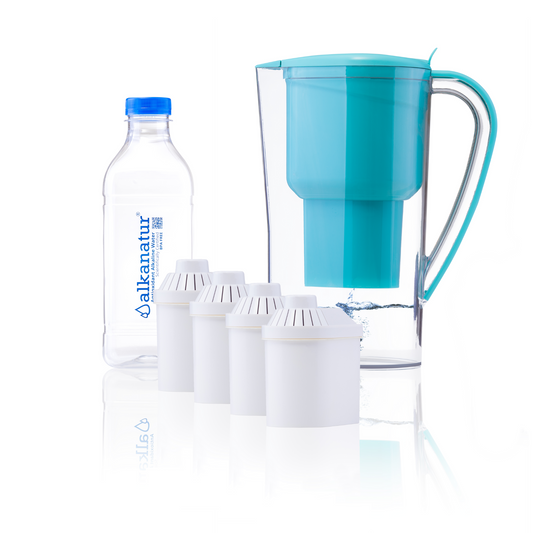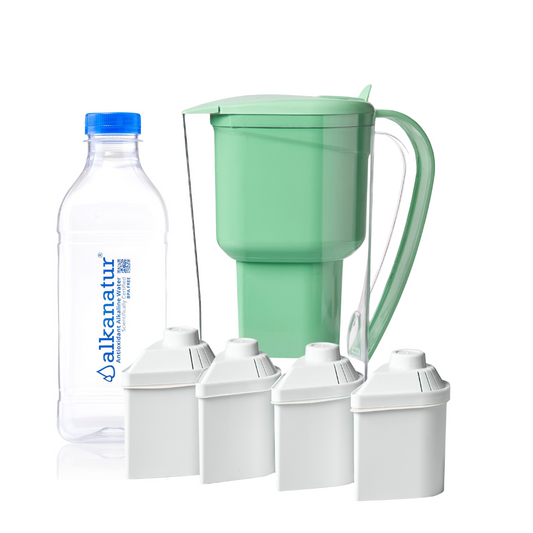Alkanatur noted a study published in 2021, which examined the impact of alkaline ionized water (AIA) on total cholesterol and lipid profiles in patients with type 2 diabetes (T2DM) and dyslipidemia. Thirty participants were enrolled in a randomized, double-blind, controlled clinical trial. While the overall findings indicated no significant differences between the AIA group and the mineral water group in lipid profiles, the AIA group did exhibit more pronounced reductions in total and LDL cholesterol levels, suggesting potential benefits for managing dyslipidemia in individuals with T2DM.
Background
Total cholesterol is a comprehensive measure of the body's cholesterol levels, encompassing low-density lipoprotein (LDL), high-density lipoprotein (HDL), and very low-density lipoprotein (VLDL). Alkaline ionized water (AIA), like Alkanatur, which is characterized by a hydrogen-rich molecular structure and an alkaline pH, has been noted for its antioxidant properties, including a negative reduction-oxidation potential (ORP) and the ability to neutralize reactive oxygen species (ROS). These attributes suggest that AIA may offer beneficial effects in reducing cholesterol levels, though study results have been inconsistent.
The aim of this study was to assess the effects of AIA on total cholesterol and other lipid profiles in patients with T2DM and dyslipidemia.
Methods
This randomized, double-blind clinical trial was conducted from December 2017 to December 2018. A total of 30 patients diagnosed with T2DM and dyslipidemia were selected from Diponegoro National Hospital in Semarang, Indonesia. These participants were randomly assigned to one of two groups: the AIA group (n=15) or the control group, which received mineral water with a pH of 7 (n=15). Both groups consumed 1 liter of their respective water daily for 12 days. Blood samples were taken before and after the 12-day period to measure changes in total cholesterol and other lipid profile markers, including LDL cholesterol, HDL cholesterol, and triglycerides. Statistical analyses were conducted using Student’s t-tests for independent and paired samples, as well as the nonparametric Mann-Whitney test.
Results
No significant differences were found between the AIA and mineral water groups in terms of lipid profile changes before and after treatment. Specifically, total cholesterol (pre-treatment: 290.2 ± 41.45 mg/dL vs. 282.2 ± 15.81 mg/dL, p=0.575; post-treatment: 249.8 ± 41.17 mg/dL vs. 268.5 ± 16.73 mg/dL, p=0.097), LDL cholesterol (pre-treatment: 167.0 ± 9.17 mg/dL vs. 162.2 ± 4.75 mg/dL, p=0.227; post-treatment: 157.2 ± 8.88 mg/dL vs. 157.6 ± 5.39 mg/dL, p=0.518), HDL cholesterol (pre-treatment: 43.8 ± 4.16 mg/dL vs. 42.8 ± 4.45 mg/dL, p=0.136; post-treatment: 47.1 ± 3.24 mg/dL vs. 45.2 ± 1.98 mg/dL, p=0.142), and triglycerides (pre-treatment: 351.0 ± 119.36 mg/dL vs. 381.3 ± 59.38 mg/dL, p=0.934; post-treatment: 266.4 ± 115.63 mg/dL vs. 317.6 ± 70.50 mg/dL, p=0.154) showed no significant differences between the two groups.
However, when evaluating the changes between pre- and post-treatment cholesterol levels, the AIA group demonstrated significantly greater reductions. The total cholesterol reduction (Δcholesterol) in the AIA group was 40.4 ± 31.57 mg/dL, compared to 13.7 ± 10.65 mg/dL in the mineral water group (p=0.002). Similarly, LDL cholesterol (ΔLDLc) decreased by 9.8 ± 4.29 mg/dL in the AIA group versus 4.6 ± 1.54 mg/dL in the mineral water group (p=0.000), and HDL cholesterol (ΔHDLc) increased by 4.3 ± 1.87 mg/dL in the AIA group, compared to 3.4 ± 3.11 mg/dL in the mineral water group (p=0.031).
Conclusion
The findings of this study suggest that alkaline ionized water (AIA) has the potential to lower total cholesterol and improve lipid profiles in patients with type 2 diabetes and dyslipidemia. While the overall differences between the AIA and mineral water groups were not statistically significant, the greater reductions in total and LDL cholesterol in the AIA group may indicate its beneficial role in the management of dyslipidemia among individuals with T2DM. These results provide a foundation for further research into the therapeutic applications of alkaline ionized water in the treatment of lipid-related conditions in diabetic patients.
Alkanatur Alkaline Water Filter Pitcher with Magnesium & Antioxidants – Alkanatur North America
Alkanatur Replacement Pack High pH Alkaline Antioxidant Purified Water – Alkanatur North America









